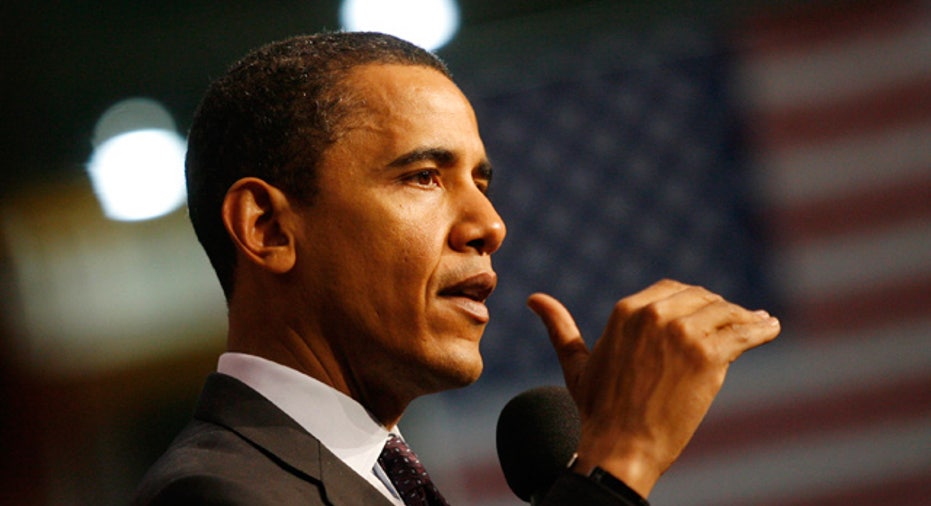What Business Wanted to Hear from the President

President Barack Obama took the stage last night to accept the Democratic nomination for president, but there is one group in particular he needed to reach: the business community.
“Romney is cleaning up with small businesses,” said Larry Sabato, director at the Center for Politics at the University of Virginia. “A lot of the larger businesses and Wall Street that went with Obama in 2008 are with Romney this time around.”
The shift in support doesn’t surprise Robert Shapiro, co-founder of chairman of Sonecon, since the administration has been critical of financial firms’ behavior since the Great Recession.
“They are clearly not supporting Obama the way they did before," he said. "It’s kind of surprising because he rescued them and now their business is booming pretty well. They don’t like some of the financial reforms, which will constrain their ability to earn as high profits by requiring them to increase capitalization. It means there’s less money to invest in risky and potentially high-profit plays; that’s where their bonuses come from.”
Last week in Tampa, the Republican Party took aim at its opponents with a convention theme of “We Built This”, playing off the president’s recent comment during a campaign stop when he said, "If you’ve got a business, you didn’t build that. Somebody else made that happen.”
In an interview this week with Richmond-based WWBT, the president said he regrets the “syntax” of the comment, adding, "But not for the point, because everyone who was there watching knows exactly what I was saying."
The Democrats have been working hard this week in Charlotte to reinforce the president’s handling of the economic recovery, leadership skills and successes like health-care reform and the killing of Usama Bin Laden.
“He said it in a sloppy fashion,” explained professor of history and public affairs at Princeton University Julian Zelizer. “Small business owners are feeling the weight of the economy right now, they are worried and anxious and hearing a statement like can make them feel more frustrated. He just needs to explain what he meant.”
Massachusetts Senate candidate Elizabeth Warren targeted Mitt Romney’s labeling of corporations as “human” and stressed Obama’s dedication to protecting consumers.
“People have hearts. They have kids. They get jobs. They get sick. They cry, they dance. They live, they love, and they die, and that matters. That matters.”
However, an Aug. 20 survey from Rasmussen Reports shows the president trails Romney by 20 points among self-employed workers or those that own their small business. These results aren’t surprising to Shapiro, who said, “Small businesses are traditionally a Republican contingency. The president has been very good to small businesses, he had a whole series of tax incentives targeted to them and has proposed others Congress hasn’t passed.”
But for small-business owners, the president’s actions hit closer to home. “With Wall Street, it’s more of a ‘he’s-banished-us mentality’ and so they have abandoned Obama, but Main Street is different, it’s more about the weak state of the economy and feeling that Obama is over- regulating,” said Sabato.
Stability. The uncertainty surrounding the legal standing of health-care reform may have ended in June, but doubts on financial regulations still linger. Experts said the president should re-confirm his plans to lead to economic stability.
“Businesses are looking for stability in financial sector,” said Zelizer. “They want a stock market that doesn’t go up and down dramatically within a few days.” He added that stability would lead to more consumer spending, normal housing activity and solid profits. “Businesses...they don’t know what is coming.”
Shapiro argued that a Romney victory would add more uncertainty to business owner’s plates since the Republican Party has made promises to repeal health care and other financial reforms. “The uncertainty isn’t with Obama, they know what is coming from his administration with health care and financial reform.”
Clear Plan. “What business mainly wants to hear is some clear path to stronger growth and the recognition of business investment,” said Shapiro.
Zelizer said the president needs to clearly detail a road map for the next four years on how he plans to not only get out of the economic stalemate, but how to get the economy booming like back in the 1990s.
Sabato added that highlighting his ideas of how to return to a stronger industrial base will help calm business jitters.
Willingness to Work Together. Business owners know the importance of compromise, efficiency and budgeting, and they expect the same from Washington. “It’s not about being too liberal or conservative,” said Zelizer.
“Right now, business owners feel that there is no way for Washington to solve our problems and businesses need a functional government they want to feel secure that if a problem comes up they will be able to fix it. Right now, the polarization makes anything like this impossible.”
A Debt Reduction Plan. The president needs to assure the business community that he is committed to reform the programs that are expanding very rapidly -- mainly Medicare and Medicaid, suggested Shapiro.
“The reforms he has proposed will not pass Congress, he needs to be able to show he will negotiate with Congress to create a package of reforms that will assure businesses that in five years we will not find ourselves on a rapidly-rising upward path of debt.”



















